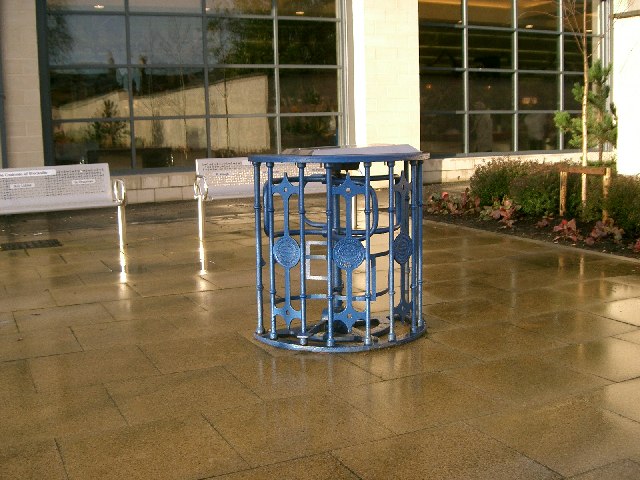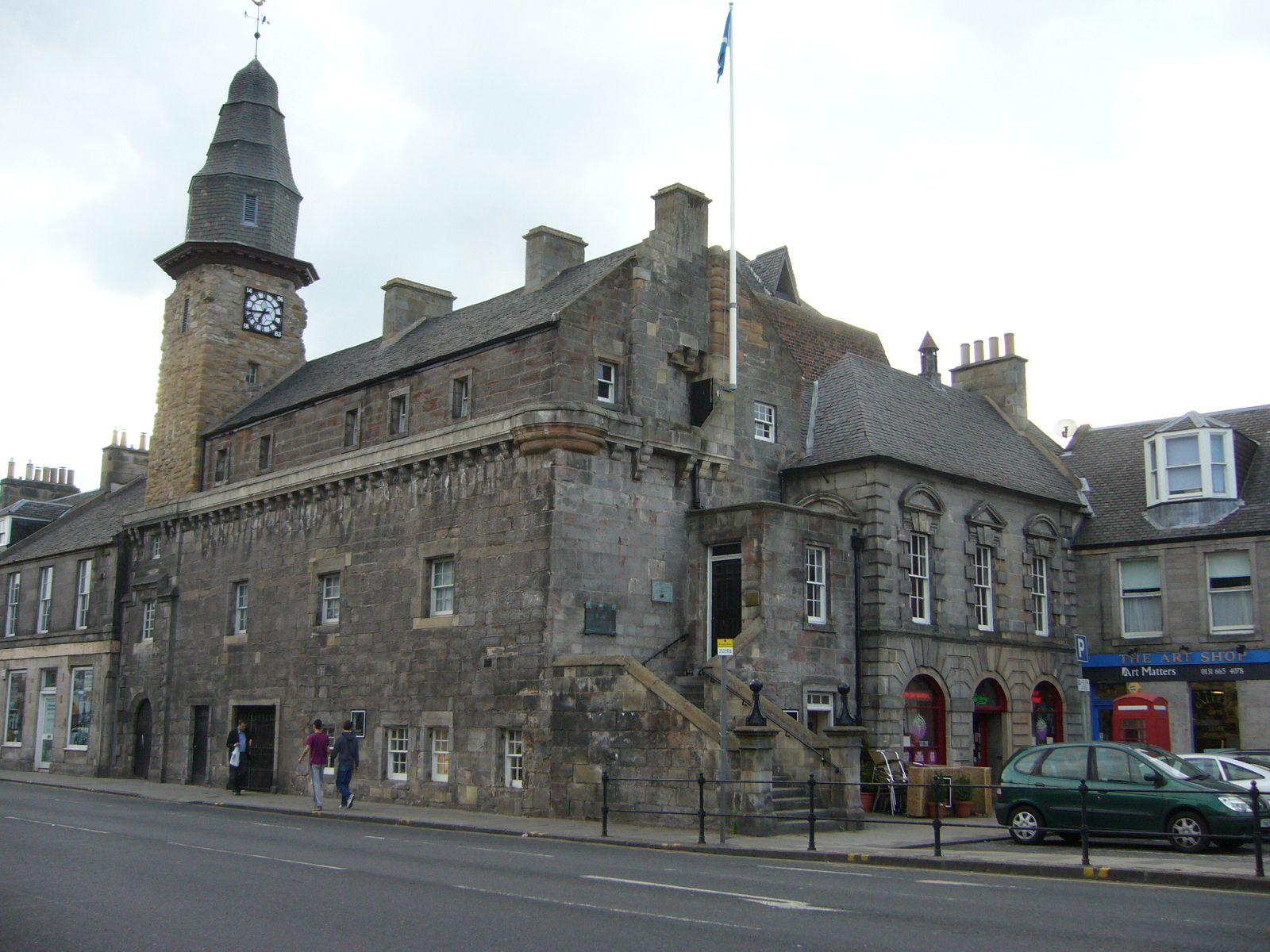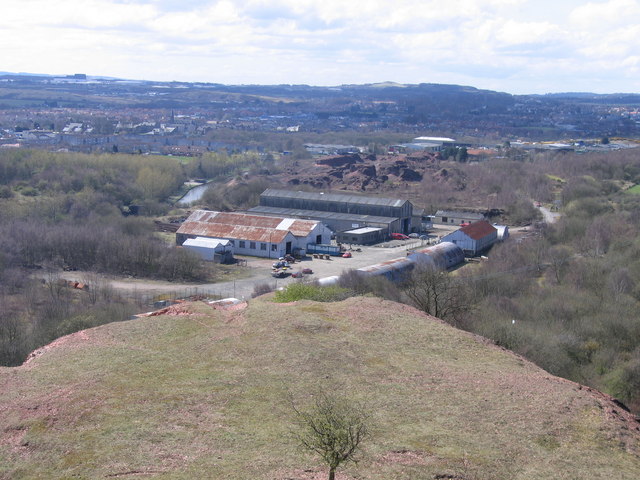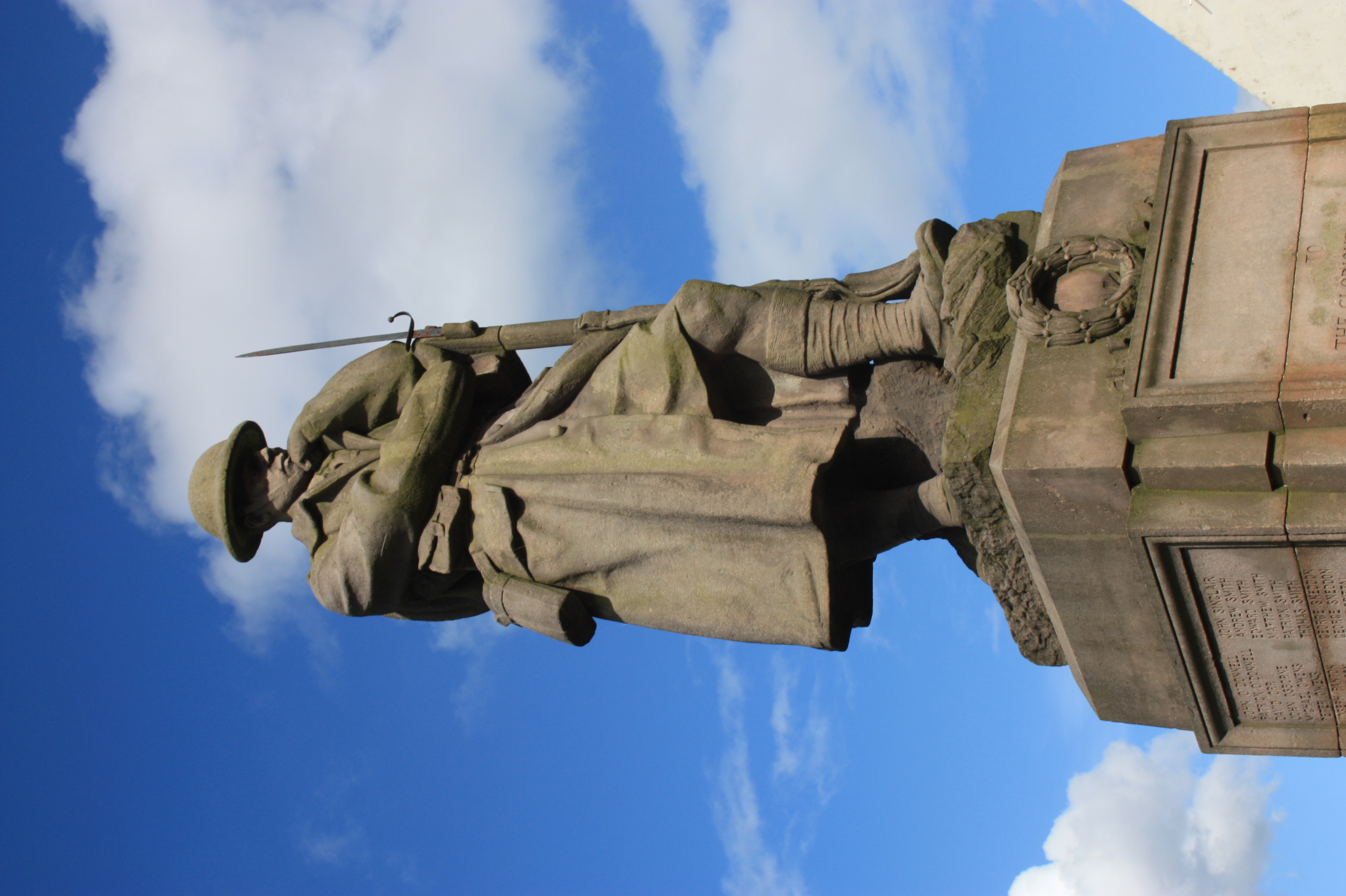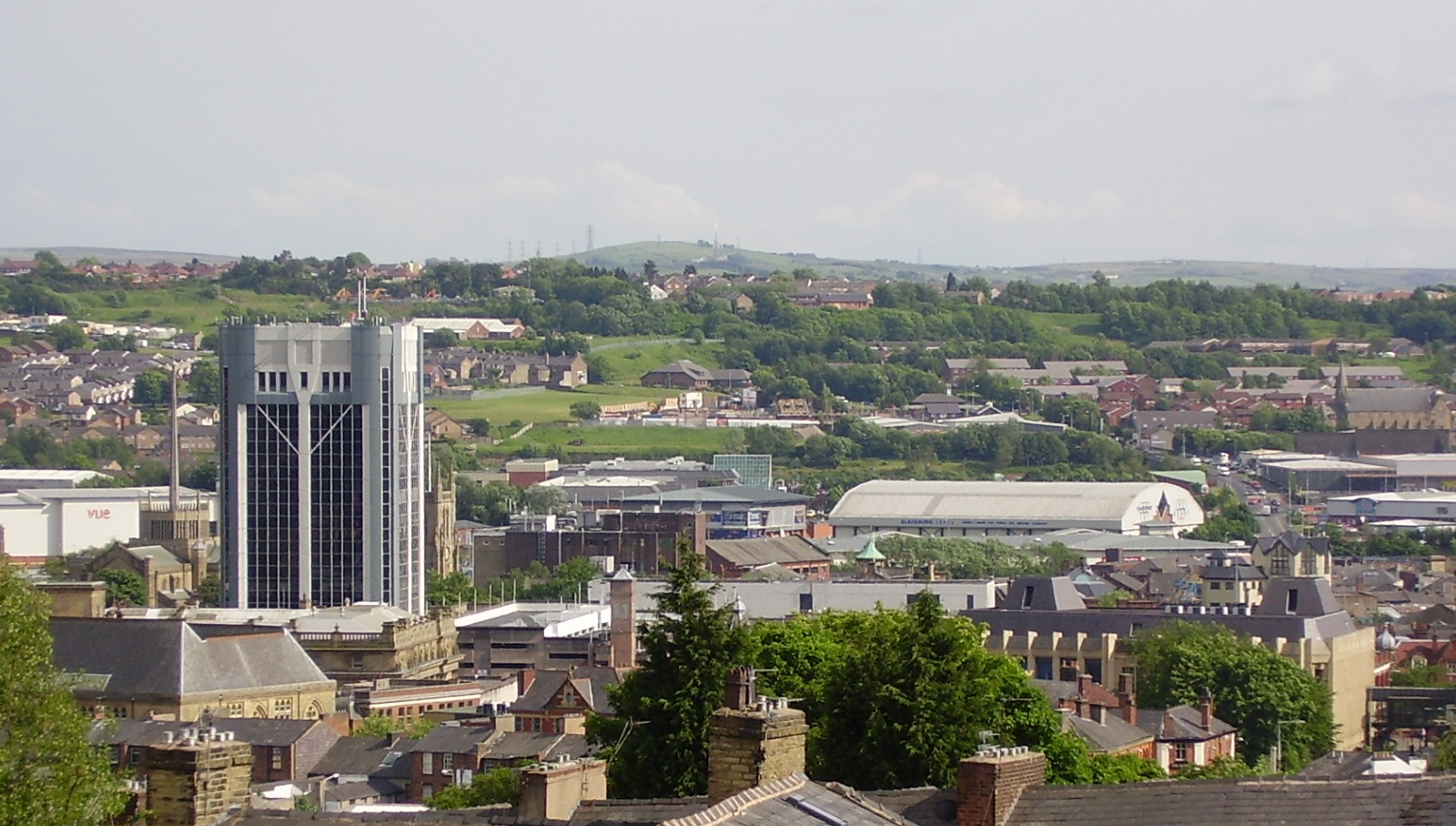|
Penicuik Athletic F.C.
Penicuik Athletic Football Club are a Scottish football club. They were formed in 1888 and are based at Penicuik Park, in the town of Penicuik. Penicuik Park is ten miles south west of Edinburgh on the A702 road. The team now plays in the East of Scotland Football League Premier Division, having moved from the junior leagues in 2018. History The Beginning Penicuik turned Junior in 1951 with the supporter's club buying Eastfield Park from the National Coal Board and built a new pavilion. The new ground was opened with a match against a strong Hibernian side which the Athletic lost 5–0. The chairman at the time, Mr David Masson and Jimmy Ketchen, were two prominent figures in the club. Their manager was Dick Walker and coach Harry Verth. Penicuik won their first silverware in 1949–50 season (before turning Junior) winning the Border Cup. In 1966 the Athletic reached the semi-final of the Scottish Junior Cup only to lose by the narrowest of margins to local rivals Bonnyr ... [...More Info...] [...Related Items...] OR: [Wikipedia] [Google] [Baidu] |
Penicuik
Penicuik ( ; sco, Penicuik; gd, Peighinn na Cuthaig) is a town and former burgh in Midlothian, Scotland, lying on the west bank of the River North Esk. It lies on the A701 midway between Edinburgh and Peebles, east of the Pentland Hills. Name The town's name is pronounced 'Pennycook' and is derived from ''Pen Y Cog'', meaning "Hill of the Cuckoo" in the British language (Celtic), Old Brythonic language (also known as Ancient British and the forerunner of modern Welsh language, Welsh). History In 1296, Thomas Rymer's ''Foedera'' mentions a "Walter Edgar a person of Penicok south of Edenburgh", which logically can only be what is now called Penicuik. Penycook appears as the name on John Adair's map of 1682 and the ruined old parish church, in the centre of the graveyard, dates from the late 17th century. Penicuik became home to an early paper mill, Valleyfield Mill, which was established by Agnes Campbell (printer), Agnes Campbell in 1709. The Pomathorn Bridge was a toll b ... [...More Info...] [...Related Items...] OR: [Wikipedia] [Google] [Baidu] |
Brockville Park
Brockville Park was a football stadium located on Hope Street in Falkirk, Scotland, north-west of the town centre. It was the home of Falkirk F.C. from 1885 until the end of 2002–03 Scottish football season.50 Fascinating Falkirk Facts , stforum.co.uk. Retrieved 2011-06-26. The record attendance at Brockville Park was 23,100 on 21 February 1953 in a match against .Team Profile & History , Scottish Premier League. Retrieved 2011-06-26. [...More Info...] [...Related Items...] OR: [Wikipedia] [Google] [Baidu] |
Lochee United F
Lochee () is an area in the west of Dundee, Scotland. Until the 19th century, it was a separate town, but was eventually surrounded by the expanding Dundee. It is notable for being home to Camperdown Works, which was the largest jute production site in the world. History 'Lochee' originally referred to the area in which weavers' cottages were situated at the burn which flowed through Balgay Lochee; thus, they were at the eye of the loch or Loch E'e, which eventually became Lochee. It is believed this site is close to where Myrekirk stands today. Indeed, John Ainslie's map of 1794 makes reference to 'Locheye' on the north and south banks of the burn. However, G. Taylor and A. Skinner's 'Survey and maps of the roads of North Britain or Scotland' in 1776 makes reference to 'Lochee'. When the loch was drained by the Duncans in the 15th century they offered crofting tenancies along the burn. One of the tenancies went to a Dutchman, James Cox and his family. After a change of name a ... [...More Info...] [...Related Items...] OR: [Wikipedia] [Google] [Baidu] |
Musselburgh Athletic F
Musselburgh (; sco, Musselburrae; gd, Baile nam Feusgan) is the largest settlement in East Lothian, Scotland, on the coast of the Firth of Forth, east of Edinburgh city centre. It has a population of . History The name Musselburgh is Old English in origin, with ''mussel'' referring to the shellfish.Musselburgh was famous for the mussel beds which grew in the Firth of Forth; after many years of claims that the mussels were unsafe for consumption, a movement has been started to reestablish the mussel beds as a commercial venture. The ''burgh'' element appears to derive from burh, in the same way as Edinburgh, before the introduction of formal burghs by David I. Its earliest Anglic name was ''Eskmuthe'' (Eskmouth) for its location at the mouth of the River Esk. Musselburgh was first settled by the Romans in the years following their invasion of Scotland in AD 80. They built a fort a little inland from the mouth of the River Esk, at Inveresk. They bridged the Esk downstream ... [...More Info...] [...Related Items...] OR: [Wikipedia] [Google] [Baidu] |
Irvine Meadow XI F
Irvine may refer to: Places On Earth Antarctica *Irvine Glacier * Mount Irvine (Antarctica) Australia *Irvine Island * Mount Irvine, New South Wales Canada *Irvine, Alberta *Irvine Inlet, Nunavut United Kingdom *Irvine, North Ayrshire, Scotland ** Irvine Royal Academy **Irvine Meadow XI F.C. **Irvine RFC ** Irvine Victoria F.C. **Irvine railway station ** Irvine Bank Street railway station *Irvine Valley, Ayrshire, Scotland, an alternative name for Loudoun * River Irvine, Scotland *Irvine Bay, Scotland United States * Irvine, California ** University of California, Irvine ** Irvine Valley College ** Irvine Unified School District **Irvine High School (Irvine, California) **Irvine (train station) *Lake Irvine, California *Irvine, Florida *Irvine, Kentucky *Irvine Park Historic District, Minnesota *Irvine Township, Benson County, North Dakota *Irvine Railroad, Pennsylvania In space *6825 Irvine, main-belt asteroid People * Irvine (name), including a list of people with the ... [...More Info...] [...Related Items...] OR: [Wikipedia] [Google] [Baidu] |
Captain (association Football)
The team captain of an association football team, sometimes known as the skipper, is a team member chosen to be the on-pitch leader of the team; they are often one of the older or more experienced members of the squad, or a player that can heavily influence a game or has good leadership qualities. The team captain is usually identified by the wearing of an armband. Responsibilities The only official responsibility of a captain specified by the Laws of the Game is to participate in the coin toss prior to kick-off (for choice of ends or to have kick-off) and prior to a penalty shootout. Contrary to what is sometimes said, captains have no special authority under the Laws to challenge a decision by the referee. However, referees may talk to the captain of a side about the side's general behaviour when necessary. At an award-giving ceremony after a fixture like a cup competition final, the captain usually leads the team up to collect their medals. Any trophy won by a team will ... [...More Info...] [...Related Items...] OR: [Wikipedia] [Google] [Baidu] |
Broxburn Athletic F
Broxburn ( gd, Srath Bhroc, IPA: �s̪ɾaˈvɾɔʰk is a town in West Lothian, Scotland, on the A89 road, from the West End of Edinburgh, from Edinburgh Airport and to the north of Livingston. Etymology The name Broxburn is a corruption of "brock's burn", brock being an old Scots name for a badger whether from the Gaelic ''broc'' or the Pictish/Welsh/Brythonic ''Broch'' and burn being a Scots word for a large stream or small river. The village was earlier known as Easter Strathbrock (Uphall was Wester Strathbrock) with Strath coming either from the Gaelic ''srath'' or the Pictish/Welsh/Brythonic ''ystrad'' meaning a river valley. History The village that later became Broxburn probably originated around 1350 when Margery le Cheyne inherited the eastern half of the Barony of Strathbrock (Easter Strathbrock) on the death of her father, Sir Reginald le Cheyne III. The hamlet that grew up around her residence was then called Eastertoun (eastern town) after the land on which it ... [...More Info...] [...Related Items...] OR: [Wikipedia] [Google] [Baidu] |
Kelty Hearts F
Kelty (Scottish Gaelic: Cailtidh) is a former coal mining village located in Fife, Scotland. Lying in the heart of the old mining heartlands of Fife, it is situated on the Fife/Kinross-shire boundary and has a population of around 6,000 residents. This was nearer to 9,000 when the coal mining industry was still operational in late 1970s and early 1980s. Origins The origin of the name of the village is somewhat obscure. It could come from the Scottish Gaelic ''coillte'' or ''coilltean'' meaning 'wood' or 'woodland' or it could come from the Gaelic ''cailtidh'', a reduced form of the early Gaelic ''*caleto-dubron'', meaning 'hard water'. In either case, it was probably originally a Pictish name that was later adapted to Gaelic. The town began around 1850 as a mining town linked to several coal mines in the area, mainly owned by the Fife Coal Company and continued to expand with the increase of mines until 1930. Kelty is located next to the main Edinburgh to Perth road, the ... [...More Info...] [...Related Items...] OR: [Wikipedia] [Google] [Baidu] |
Scottish Junior Football East Region Premier League
The Scottish Junior Football East Region Premier League, was the second-highest division of the East Region of the Scottish Junior Football Association between 2006 and 2018. History From the 2006–07 season the East Super League was the highest tier, with the Premier League feeding down into South, Central and North divisions, replacing (but largely based upon) the old East (Lothians), Fife and Tayside leagues respectively. To populate the Premier League for its first season, three teams were relegated from the Super League and three were promoted from each of the districts – teams finishing 2nd–4th, with the winners jumping straight to the Super League. From the second season onwards, the bottom three teams were relegated (regardless of their originating location) with the three lower division winners replacing them. The Premier League winners and runners-up were promoted to the Super League, swapping with its bottom two teams. From 2013 to 2014, the Premier League was exp ... [...More Info...] [...Related Items...] OR: [Wikipedia] [Google] [Baidu] |
Scottish Junior Football Lothians Division One
Scottish usually refers to something of, from, or related to Scotland, including: *Scottish Gaelic, a Celtic Goidelic language of the Indo-European language family native to Scotland *Scottish English *Scottish national identity, the Scottish identity and common culture *Scottish people, a nation and ethnic group native to Scotland *Scots language, a West Germanic language spoken in lowland Scotland *Symphony No. 3 (Mendelssohn), a symphony by Felix Mendelssohn known as ''the Scottish'' See also *Scotch (other) *Scotland (other) *Scots (other) *Scottian (other) *Schottische The schottische is a partnered country dance that apparently originated in Bohemia. It was popular in Victorian era ballrooms as a part of the Bohemian folk-dance craze and left its traces in folk music of countries such as Argentina ("chotis"Span ... * {{disambiguation Language and nationality disambiguation pages ca:Escocès ... [...More Info...] [...Related Items...] OR: [Wikipedia] [Google] [Baidu] |
Scottish Junior Football Lothians Division Two
Scottish usually refers to something of, from, or related to Scotland, including: *Scottish Gaelic, a Celtic Goidelic language of the Indo-European language family native to Scotland *Scottish English *Scottish national identity, the Scottish identity and common culture *Scottish people, a nation and ethnic group native to Scotland *Scots language, a West Germanic language spoken in lowland Scotland *Symphony No. 3 (Mendelssohn), a symphony by Felix Mendelssohn known as ''the Scottish'' See also *Scotch (other) *Scotland (other) *Scots (other) *Scottian (other) *Schottische The schottische is a partnered country dance that apparently originated in Bohemia. It was popular in Victorian era ballrooms as a part of the Bohemian folk-dance craze and left its traces in folk music of countries such as Argentina ("chotis"Span ... * {{disambiguation Language and nationality disambiguation pages ca:Escocès ... [...More Info...] [...Related Items...] OR: [Wikipedia] [Google] [Baidu] |
Blackburn United F
Blackburn () is an industrial town and the administrative centre of the Blackburn with Darwen borough in Lancashire, England. The town is north of the West Pennine Moors on the southern edge of the River Ribble, Ribble Valley, east of Preston, Lancashire, Preston and north-northwest of Manchester. Blackburn is the core centre of the wider unitary authority area along with the town of Darwen. It is one of the largest districts in Lancashire, with commuter links to neighbouring cities of Manchester, Salford, Greater Manchester, Salford, Preston, Lancashire, Preston, Lancaster, Lancashire, Lancaster, Liverpool, Bradford and Leeds. At the United Kingdom Census 2011, 2011 census, Blackburn had a population of List of urban areas in England by population, 117,963, whilst the wider borough of Blackburn with Darwen had a population of List of English districts by population, 150,030. Blackburn had a population of 117,963 in 2011, with 30.8% being people of ethnic backgrounds other ... [...More Info...] [...Related Items...] OR: [Wikipedia] [Google] [Baidu] |

